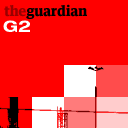|
|
. |
 |
 he Guardian G2 Poker Column he Guardian G2 Poker Column |
|
| |
|
 |
| |
 |
| |
| Victoria
Coren |
| Monday Dec 4th, 2006
|
| |
 |
| |
 |
|
|
The benefit of Omaha (which is just like hold 'em, except you are
dealt four or five "hole cards" and you must use two of them with three from
the board to make your hand) is that, by giving people more cards, you give
them more reason to stay in the pot and gamble.
Beware: good Omaha
players are usually stronger and more knowledgeable, with better maths, than
most hold 'em players. But if you can be the first to teach your friends Omaha,
you could mop up their life savings while they're still getting the hang of it.
|
|
|
|
|
|
|
How? By playing solid. In your starting hands,
you want all the cards working together. Hold 'em aficionados will go dizzy
with excitement if they find a pair of aces. That's not such a golden goose in
Omaha; your hand won't be huge unless you have suited cards with the aces,
giving you nut flush draws as well as the pair. Straightening hands (like
K-K-Q-J) are also strong. But something like J-J-7-3 is just rubbish: the pair
is useless unless you flop a set, and the other cards are "danglers" that don't
help you.
Having said that, no Omaha hand is a significant underdog
before the flop. So in a good game, you can see a lot of flops. But after the
flop, you should be super-solid. Hold 'em players will think any flush or
straight is a monster, and that two pair is bound to be winning. Not so. If
you're drawing to a flush or straight in Omaha, it should be the nut draw. If
you're playing two pair, it should be the top two (and even that is
vulnerable). If there's a pair on the board, do not bet strongly without a full
house.
Let your friends gamble with all their extra cards, play the
nuts and nut draws, and (as you clean them out) they will grumble at your luck
in "finding" so many big hands. The secret is: you were waiting for them.
|
|
|
| |
|
|
 |
| |
|
. |

|


